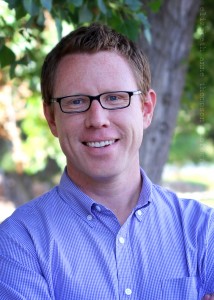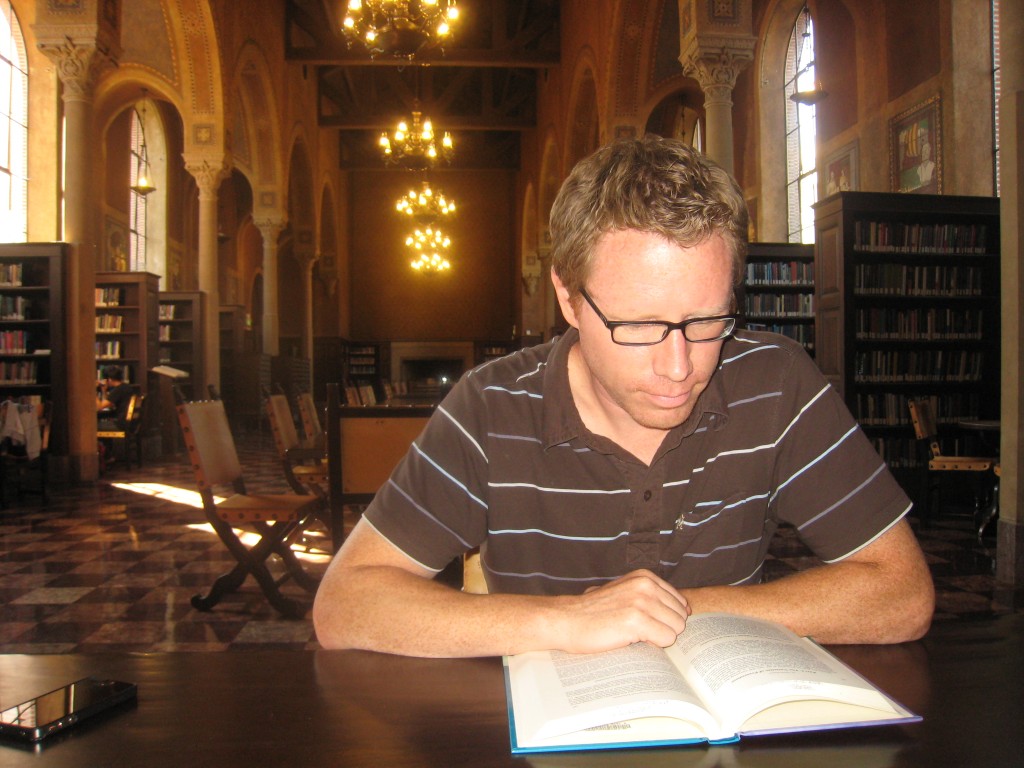Timothy Bayless, Associated Blog Contributor
 Tim Bayless earned an M.A. in philosophy of religion and ethics at Talbot School of Theology (Biola University), and a B.A. in biology from the University of Northern Colorado. In between his undergraduate and graduate careers, he served for 4 years with Campus Crusade in the U.S. and East Asia.
Tim Bayless earned an M.A. in philosophy of religion and ethics at Talbot School of Theology (Biola University), and a B.A. in biology from the University of Northern Colorado. In between his undergraduate and graduate careers, he served for 4 years with Campus Crusade in the U.S. and East Asia.
Of Tim, J.P. Moreland has said:
"Tim is a very good friend who was one of my best students. He has a fiery passion for life and the things of God, and he combines faithfulness and a good sense of humor into a pleasant way of being present to others."
We recently interviewed Tim about some of his own passions, interests, and journey.
Tim, how would you describe your journey as a disciple of Jesus? Any major themes that describe who you are becoming?
I grew up in a family that loves Jesus and have been a Christian most of my life. It took until college, though, to realize that this involved being a disciple, and still longer to think of that as apprenticeship to Jesus. Over the past few years, I've been learning about the notion of the Kingdom of God, as described in Scripture, and particularly how, as one expression of it, the Holy Spirit works in the church in overtly supernatural ways. As a result, I've noticed greater confidence in the past few years concerning the types of things I'm willing to pray for, and what I think God might do in response.
What are some of your interests or areas of expertise? How have they been cultivated over the years?
I enjoy reading widely, but my interests primarily focus around the areas of my graduate training, which has been, broadly speaking, in philosophy and theology. One sub-field of philosophy that I have studied in a bit more depth is the nature of conscious experience. One reason for doing so has been in an attempt to better understand the way in which the various sources of theological knowledge (one such source being experience of God) come together to give us Christian doctrine.
What are some topics or themes that you intend to write about as a contributor to the blog at www.jpmoreland.com?
Philosophical and theological topics of any sort, apologetics, the nature of public discourse, and maybe something on a Christian view of economics from time to time, though that's something I'm new to. I might comment on current events here and there.
Are you engaged in any further educational or professional enrichment training (formally or informally) at this time? If so, what does that look like and how is that meaningful to you?
I’ve spent the past couple years as a graduate student in philosophy at the University of California, Irvine doing what grad students do: attending graduate seminars, writing papers, and doing lots of reading. I’ve also been a teaching assistant for undergrad courses in the department. Prior to that, I earned an M.A. in philosophy of religion and ethics at Talbot School of Theology. I'd like to think that my time at UCI and Talbot has made me a sharper thinker and better communicator, in addition to familiarizing me with some really interesting and important issues.
As a former student of JP’s, what did you most enjoy or appreciate about his teaching and leadership?
Two things. JP consistently made us laugh, which made it a lot of fun to go to his classes. More than that though, he regularly tried to give us perspective on our studies. On my first day at Talbot, JP began class by reminding us that we should engage in study first for the sake of being a good person rather than to win arguments. His love for his students came through in class, in office hours, and in casual conversation.
Any funny Moreland story or memorable Moreland-ism that you enjoy?
JP would sometimes call attention to a point during lecture with some kind of exclamatory preface so that we would all be sure to get what was about to be said. One day, the following came out with complete seriousness: "This, ladies and gentlemen, is H-U-G-H!”
When you think about J.P.’s work, which book or theme in his writing/speaking seems to most resonate with your life and thinking? Why that association?
The key theme has been that Christianity is a knowledge tradition and not just a faith tradition. I'm a Christian first and foremost because I'm interested in what the world is like and how I need respond because of the way the world is. I think not only does Christianity give us the right account about the most important things in the world, but that we can even know that what Christianity says about the world is true. This theme appears, for instance, in Kingdom Triangle and in a conference paper he delivered about the role of extra-biblical knowledge in informing theology.
What other books have been formative to your development?
The Bible; Aristotle’s Nicomachean Ethics; Dallas Willard’s Hearing God; Graham Twelftree's Jesus the Miracle Worker: A Historical and Theological Study; William Lane Craig’s Reasonable Faith; Jack Deere’s Surprised by the Voice of God and Surprised by the Power of the Spirit; Dostoyevsky's The Brothers Karamazov.
What do you find to be delightful?
Time spent with family and friends, usually on a back porch, at the beach or Disneyland. Discussing the themes of this blog. Grilling assorted meats. Reading with coffee. Playing guitar.
What are some helpful practices that routinely mark your life as a disciple? How have they been formative?
Sleeping enough—or trying to: I can't do much without a decent night's sleep. Unplugging from devices as often as realistically possible: my attention span plummets if I don't do this; and without an attention span, it's hard to think carefully or at length about much.
What would be a main, steadfast word of encouragement that you would give to a fellow disciple in their journey?
I would remind them to remember that the Lord loves them, that he is active and cares about whatever their situation is, and that he has a consistent track record of unexpectedly breaking into our lives pretty regularly and in remarkable ways.


